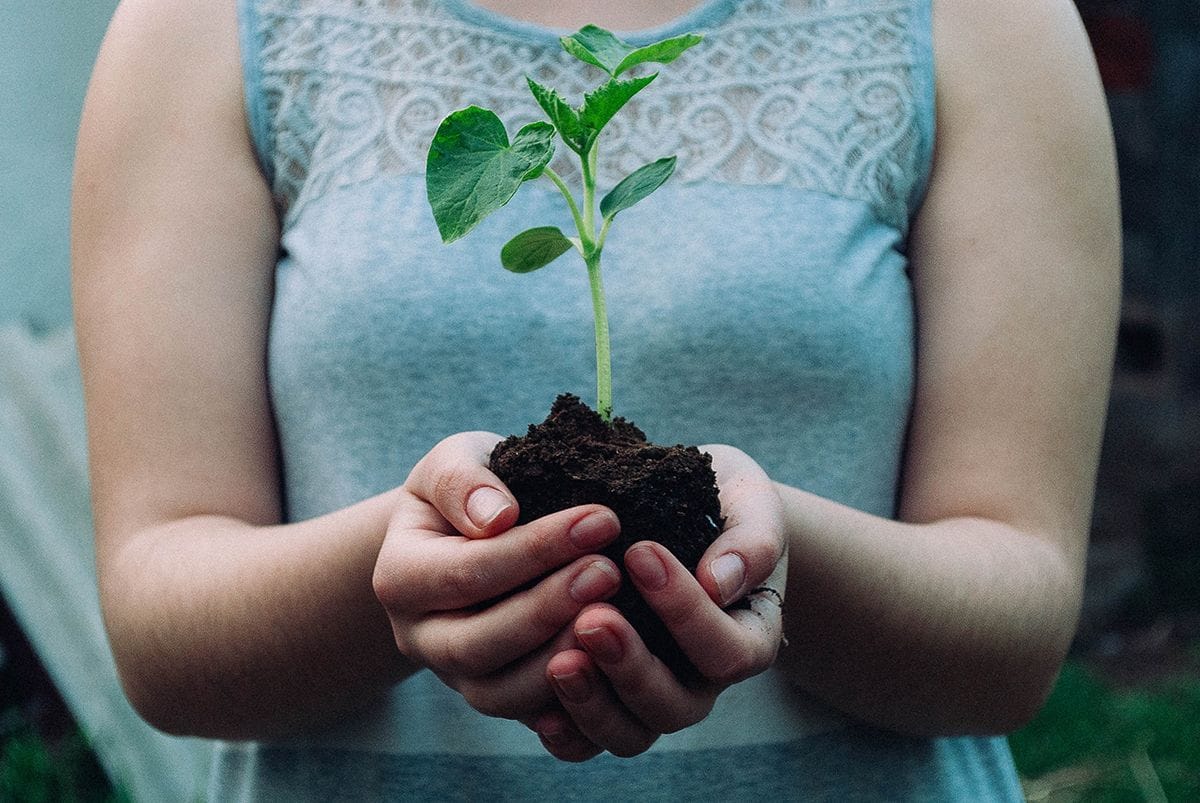Grow Your Environmental Impact with a Financial Habit Refresh
In celebration of Financial Literacy Month and Earth Day, we’re exploring how you can increase your environmental impact through refreshed financial habits.

April is Financial Literacy Month, a month to prioritize financial wellness and education. April is also a month to prioritize sustainability and environmental impact, with Earth Day happening April 22nd. What could be better than bringing the two together?
Whether you’re already a financial literacy pro or new to Incorporating environmental sustainability into your financial wellness routine is an effective way to make a difference, while achieving your goals.
Impact Investing
Investing is a powerful way to grow your savings in order to reach your goals, whether you’re hoping to save for retirement, your children’s education, or your first home. Impact investing is an investment strategy centered around the goal of having an impact — either socially or environmentally.
Impact investing is an effective way to make a difference and grow your savings simultaneously. Explore research on impact investing strategies from the Global Impact Investing Network and learn more about how to create your own portfolio to fight against climate change.
Incorporating Philanthropy
If you can, it’s a good idea to include charitable donations to environmental causes in your budget each month. (If you don’t yet have a budget, start here.) Your contributions don’t need to be enormous to make a difference — you can make big changes with a few dollars each month. After all, small streams become great rivers and out of tiny acorns mighty oaks grow!
Consider incorporating micro and passive donations into your financial plan. You likely won’t notice the money you’re donating leave your wallet, but charities — and the environment — sure will. Use the bunny.money app to give to your favorite environmentally-focused causes.
If giving isn’t in your budget, make time to volunteer. Whether you’re volunteering a skill you’re great at or learning a new skill to give back, you’ll bolster your resume and broaden your network, making it easier to get a new job or raise in the future, while having an impact.
Spending Green to Save Green
It’s imperative to avoid greenwashing, but when you do your research and purchase products that are actually environmentally and sustainable, you’re more likely to save money in the long run. While higher quality resources may cost more upfront, like nicer clothing vs. fast fashion, or glass storage containers vs. plastic, they’ll typically last longer.
Do research ahead of making a purchase to determine how sustainable an organization is. Certified B Corporations are committed to specific levels of social and environmental impact, making them ideal to purchase from. Leverage the B Corp Directory to find certified B Corporations to purchase from.
When it comes to clothing, about 21 billion pounds of post-consumer textile waste is sent to landfills annually. You can shop at thrift stores to find gently used items that still have life left in them. You’ll be able to save money on your new finds, and you’ll save the environment by stopping a perfectly fine item from going to the dump. When you’re done with old clothing, consider donating it to a thrift store, charitable organization, or hosting a clothing swap with friends and family.
Another strategy to consider is buying bulk. If you can afford to, buy dry goods like rice, beans, pasta, and spices in bulk. Don’t forget to save those jars! Some stores will even let you bring your own container, further reducing waste.
Additional Eco-friendly Budget Hacks
Impact investing and prioritizing giving are two powerful ways to make a difference with your budget. These strategies will help you save money while supporting environmental change.
Grow herbs & vegetables at home
If you have space, set up a garden in your backyard, patio, or windowsill. Herbs can be expensive (and sometimes hard to find) at the grocery store. Growing your own reduces emissions from shipping, helps you save money, and is a great way to learn a new skill.
Reduce food waste
Studies have shown that the average household wastes nearly ⅓ of all purchased food. Make a grocery list and a meal plan at the beginning of each week, then stick to it. Bonus points if you can shop sales and align your meals with grocery deals. If you make too much food, consider sharing a hot meal with a neighbor or local friend.
Compost organic waste
If available, bring your organic waste to a composting facility where it can be turned into nutrient-rich soil. Use Find a Composter to locate a facility near you.
Alternatively, if you have the space, make your own compost bin. Setting up a compost bin at home is easy, and (surprisingly) odorless. When you mix in the right amount of paper goods, your compost pile shouldn’t smell. Then, use your finished compost to enrich your garden.
Grow Your Environmental Impact with bunny.money
By using bunny.money, you’re already growing your impact! bunny.money is a B Corp™ and pledges to donate 1% of its revenues to environmental causes via its 1% for the Planet membership.
In addition, bunny.money helps you save for the future and give to causes you care about from one place. By giving through bunny.money, non-profit organizations get to keep 100% of your donation — bunny.money never takes any fees
Start making an impact today by giving to organizations that help save our planet, like back2earth, Sustainable Conservation, Public Land and Water Access, and Carbon Lighthouse Association via the bunny.money app. Sign up now and select your preferred nonprofit to start giving.
